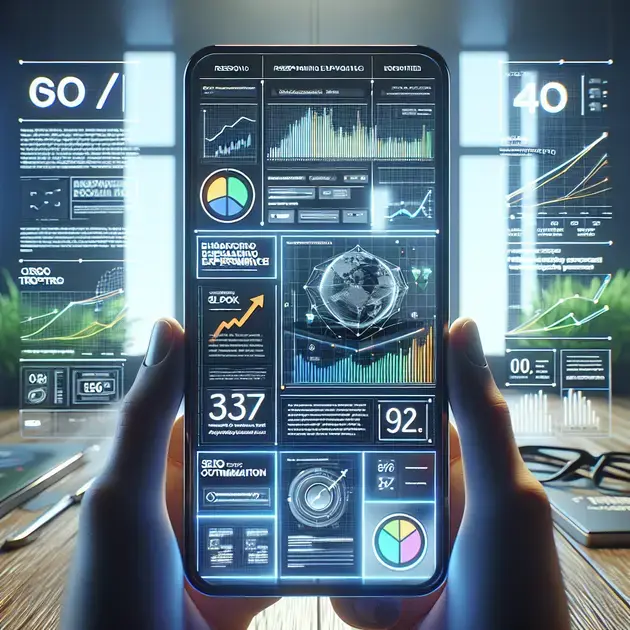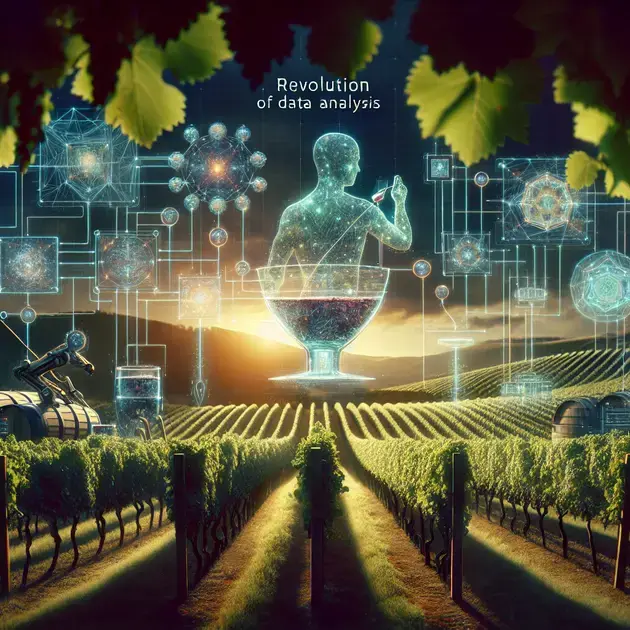In recent years, artificial intelligence has emerged as a powerful tool that is changing the world we live in. For many women over 30, these advancements are not just a trend; they are an opportunity to grow and thrive. The intersection of technology and empowerment holds incredible potential to help women achieve their goals and make a positive impact in their communities.
Embracing artificial intelligence allows women to enhance their skills and streamline their everyday tasks. From managing finances to balancing work and family life, AI-driven tools can provide vital support. This means women can invest more time in their passions and personal growth, rather than getting bogged down in mundane responsibilities.
Moreover, the representation of women in tech continues to grow, further democratizing access to artificial intelligence resources. With more women stepping into roles in the AI field, we witness a shift in how this technology is developed and utilized. As a result, women over 30 are not only beneficiaries of these advancements but are also key players in shaping the future of technology.
Harnessing AI to Enhance Career Opportunities for Women
The integration of Inteligencia artificial in the workplace is transforming career opportunities for women across various sectors. Imagine having the ability to analyze job market trends, skills in demand, and potential employers—all from your smartphone or laptop. Tools powered by Inteligencia artificial like LinkedIn’s AI job recommendations or Glassdoor’s personalized job alerts utilize algorithms to help you find jobs that truly match your skills and aspirations. This technology not only saves you time but also ensures that you’re applying to positions that are a good fit, dramatically improving your chances of landing an interview.
Additionally, AI-driven platforms can assist in skill enhancement by recommending online courses that are tailored to your career goals. For instance, platforms like Coursera and Udacity utilize Inteligencia artificial to recommend courses based on your current skill set and desired career path. By investing time in these courses, you become more competitive in the job market. Envision a future where you confidently apply for promotions or new jobs with an impressive resume backed by recent certifications!
Networking is another critical area where Inteligencia artificial can help elevate your career. AI tools can analyze your network to identify potential mentors or collaborators who could help you advance in your field. Imagine connecting with influential women leaders in your industry—people who could provide guidance, opportunities, or even serve as role models for your career aspirations. Utilizing platforms like Bumble Bizz can enhance your networking experience, powered by Inteligencia artificial, making it easier to find valuable connections.
Finally, don’t underestimate the importance of effective communication in career advancement. AI applications like Grammarly and Hemingway Editor utilize Inteligencia artificial to improve your writing skills, ensuring that your emails, proposals, and reports are professional and impactful. With these tools, your written communication becomes clearer and more persuasive, ultimately leading to better professional relationships. Invest in these AI solutions to not only enhance your skills but to also empower your career journey as a woman in today’s workforce.
Personal Growth Through AI: Tools for Confidence and Well-being
Personal growth can be greatly supported by Inteligencia artificial, especially when it comes to building confidence and promoting well-being. AI-driven coaching platforms like Woebot and BetterHelp offer personalized mental health support at your fingertips. These tools use Inteligencia artificial to assess your emotional needs and provide tailored guidance, making it easier for you to manage stress and anxiety. Imagine having a supportive resource available 24/7 that helps you navigate through tough times while building your mental resilience.
Moreover, wellness apps such as Headspace and Calm provide guided meditations and mindfulness exercises utilizing Inteligencia artificial. These platforms can analyze your daily mood and suggest practices that align with your emotional state. Taking just a few minutes each day for self-care can significantly improve your overall well-being. Think about how easier it would be to maintain work-life balance when you have tailored tools that contribute to your personal growth.
For even more structured personal development, consider using AI-driven goal-setting apps like Strides or Coach.me. These applications make use of Inteligencia artificial to track your progress and send you reminders, helping you stay accountable for your personal goals. Picture a scenario where you can easily monitor your achievements and identify areas of growth, leading to a heightened sense of accomplishment and confidence.
Lastly, community and peer support can be stronger with AI tools like Reddit or Meetup, where you can easily find support groups or activities focused on personal growth and women’s empowerment. The Inteligencia artificial algorithms in these platforms recommend communities that align with your interests and values, helping you connect with like-minded individuals. The future looks promising when you surround yourself with supportive women driven by growth and confidence!
AI Solutions That Simplify Life: Juggling Work, Family, and More
Managing multiple roles as a working woman often leads to a chaotic schedule. Luckily, Inteligencia artificial solutions can simplify life significantly. Consider using AI-powered calendar apps like Google Calendar or Microsoft Outlook, which can optimize your schedule by finding the best times for meetings or family activities. These programs learn your preferences over time, ensuring that you can balance work responsibilities with family commitments seamlessly.
Another essential tool is AI-powered virtual assistants like Amazon Alexa or Google Assistant. These smart assistants can manage reminders, create shopping lists, and even help with time management by scheduling tasks. Imagine a time-saving scenario where you can delegate mundane tasks to your virtual assistant, making room for more quality time with family or self-care, all thanks to Inteligencia artificial!
To further alleviate stress, consider using budgeting apps like Mint or YNAB (You Need A Budget), which employ Inteligencia artificial to track and manage expenses. These tools analyze your spending habits, providing tailored budgets and spending alerts that make it easier to stay on top of finances without the headache. Create a step-by-step plan for financial health: set your goals, analyze your current situation, and let the AI recommend changes to optimize your budget.
Lastly, meal-planning apps like Mealime and Yummly use Inteligencia artificial to help you plan weekly meals tailored to your dietary preferences and family size. They can suggest recipes based on what you have at home, making grocery shopping efficient and less exhausting. Picture a scenario where you no longer dread the “What’s for dinner?” question at the end of a long workday—it’s all made easier with a few taps on your phone!
Leveraging AI for Financial Independence and Smart Investment Choices
The journey towards financial independence is becoming increasingly accessible, thanks to Inteligencia artificial. Imagine having personal financial advisors at your fingertips through AI-driven apps like Wealthfront and Betterment. These platforms analyze your financial situation, investment goals, and risk tolerance in real-time, allowing you to make informed decisions about your money. The use of Inteligencia artificial empowers you to take control of your investments without needing to be a financial expert.
To effectively leverage Inteligencia artificial for investment choices, start by setting clear financial goals. Are you saving for retirement, a house, or your children’s education? Define your objectives and input them into these AI platforms, which will recommend tailored investment strategies based on your aspirations. This personalized approach takes the guesswork out of investing, making your financial future feel much more attainable.
Additionally, consider using budgeting tools like Tiller Money or PocketGuard that implement Inteligencia artificial to track your spending habits. By categorizing expenditures and analyzing patterns, these apps identify areas where you can save money. Follow a simple step-by-step process: download the app, link your bank accounts, set your budget categories, and watch as Inteligencia artificial turns your financial data into actionable insights for improvement.
Moreover, AI-powered platforms offer historical data analysis and predictive modeling to help you understand market trends. By utilizing resources like Zacks Investment Research or Yahoo Finance, you gain insights into potential investment opportunities that align with your goals. The beauty of Inteligencia artificial here is its ability to analyze vast amounts of data faster than any human, giving you a competitive edge in your investment journey.
Finally, as you gain confidence in your financial skills, don’t forget the benefits of community support. Online forums and investment groups infused with Inteligencia artificial can provide valuable experience and recommendations. Platforms like Reddit or StockTwits allow you to connect with other women who are also on the path to financial independence, creating a network of support that can enhance your knowledge and motivation. Picture a future where you not only achieve your financial goals but also inspire and empower others through your journey!
Building Stronger Connections: How AI Fosters Supportive Communities for Women
Strengthening connections among women has never been easier, thanks to Inteligencia artificial that helps foster supportive communities. Imagine finding your tribe right in your pocket with platforms like Facebook Groups or Meetup, where AI algorithms suggest communities specifically catered to your interests and needs. Whether you’re seeking professional connections, personal development, or just a friendly chat, Inteligencia artificial makes it all possible.
The first step in building these connections is to create an engaging profile that highlights your interests and aspirations. Once you’ve set up your profile, the power of Inteligencia artificial kicks in, recommending groups and individuals who share similar goals. This allows you to surround yourself with like-minded women who inspire and encourage each other on various life paths.
Next, consider participating in online discussions and webinars that leverage Inteligencia artificial. Platforms like Zoom or Eventbrite use AI to tailor events and educational opportunities specifically for women. You can benefit from expert advice and inspiring stories that empower you to grow personally and professionally, building a sense of community centered around collective support.
Moreover, virtual networking tools like Shapr utilize Inteligencia artificial to connect women professionally. The app functions like a Tinder for networking, matching you with other women in your industry or field of interest. Just swipe right to connect! By engaging with these women, you create lasting relationships that can thrive in both personal and professional realms.
Lastly, don’t underestimate the impact of sharing your experiences with others in these communities. Utilize social media and blogging platforms to write about your journey. The beauty of Inteligencia artificial is that it can help amplify your message by suggesting optimal posting times or even editing tools to enhance your writing. Picture a world where your personal story motivates and uplifts other women, creating a ripple effect of positivity and encouragement!
Creative Expression and AI: Empowering Women Through Art and Innovation
In an era where creativity meets technology, Inteligencia artificial is opening new doors for women in the arts. Imagine using AI tools like DeepArt or Artbreeder to create beautiful, unique artwork with just a few clicks. These platforms allow you to combine different styles and elements, providing an innovative outlet for self-expression. The use of Inteligencia artificial empowers women to explore their artistic talents without requiring extensive technical skills.
To start your journey into AI-driven art, first, choose an AI art generator that resonates with your vision. Next, gather inspiration—whether from nature, dreams, or existing art pieces. Input your concepts into the platform, which utilizes Inteligencia artificial to blend styles and produce stunning visuals. This simple process can unleash your creative side and lead to countless hours of enjoyment and personal satisfaction.
Moreover, you can enhance your creative skills with platforms like Canva, which offers AI-powered design suggestions tailored to your content. This tool helps you effortlessly create eye-catching graphics for social media, presentations, or personal projects. By taking advantage of Inteligencia artificial design recommendations, you streamline your workflow and focus on what truly matters—your creative vision.
Furthermore, community engagement is essential in the world of art. Participate in online art groups and creative challenges on platforms like DeviantArt or Instagram. Many of these communities integrate Inteligencia artificial algorithms to foster collaboration and inspiration among members. Share your creations, seek feedback, and connect with fellow women artists who can provide encouragement, inspiration, and invaluable networking opportunities.
Lastly, consider incorporating your artwork into products and entrepreneurial ventures. AI platforms like Printful allow you to turn your designs into merchandise. Picture a time where your works of art come to life on clothing or home decor, all thanks to Inteligencia artificial simplifying the process. Your creative path filled with self-expression, support, and potential revenue streams can significantly improve your life and inspire others along the way!
Conclusion
In a world where technology continues to evolve, artificial intelligence stands out as a powerful ally for women over 30, enabling them to thrive personally and professionally. From enhancing career opportunities to simplifying daily life, AI is reshaping the landscape, making it easier for women to find fulfilling jobs, improve their skills, and manage their work-life balance. The tools discussed demonstrate how AI-driven platforms can match job seekers with the right opportunities, guiding them towards certifications that can elevate their professional profiles.
Moreover, personal growth is achievable through AI-enhanced resources that foster confidence and well-being. By providing tailored mental health support, personalized fitness recommendations, and structured goal-setting, AI tools empower women to embrace their journeys, overcoming challenges and telling powerful stories. This focus on well-being allows them to harness resilience, paving the way for both personal satisfaction and professional success.
Additionally, financial independence and creative expression are within reach, thanks to AI solutions that equip women with smart investment choices and innovative artistic avenues. With AI as a guide, women can navigate the complex world of finance, actively participating in shaping their futures. Furthermore, platforms that facilitate community connections create supportive networks, ensuring women find their tribes and amplify their voices, promoting collaboration and growth.
Ultimately, leveraging AI can create opportunities that were once unattainable or daunting. As women embrace these technologies, they become empowered to reclaim their narratives and celebrate their achievements. The future looks bright as AI continues to dismantle barriers, fomenting an environment where women of all backgrounds can flourish. Invest in AI today, not just as a tool but as a transformative force for your career, personal growth, and creative endeavors. Embrace this technology and watch how it opens doors to a world filled with possibilities!











